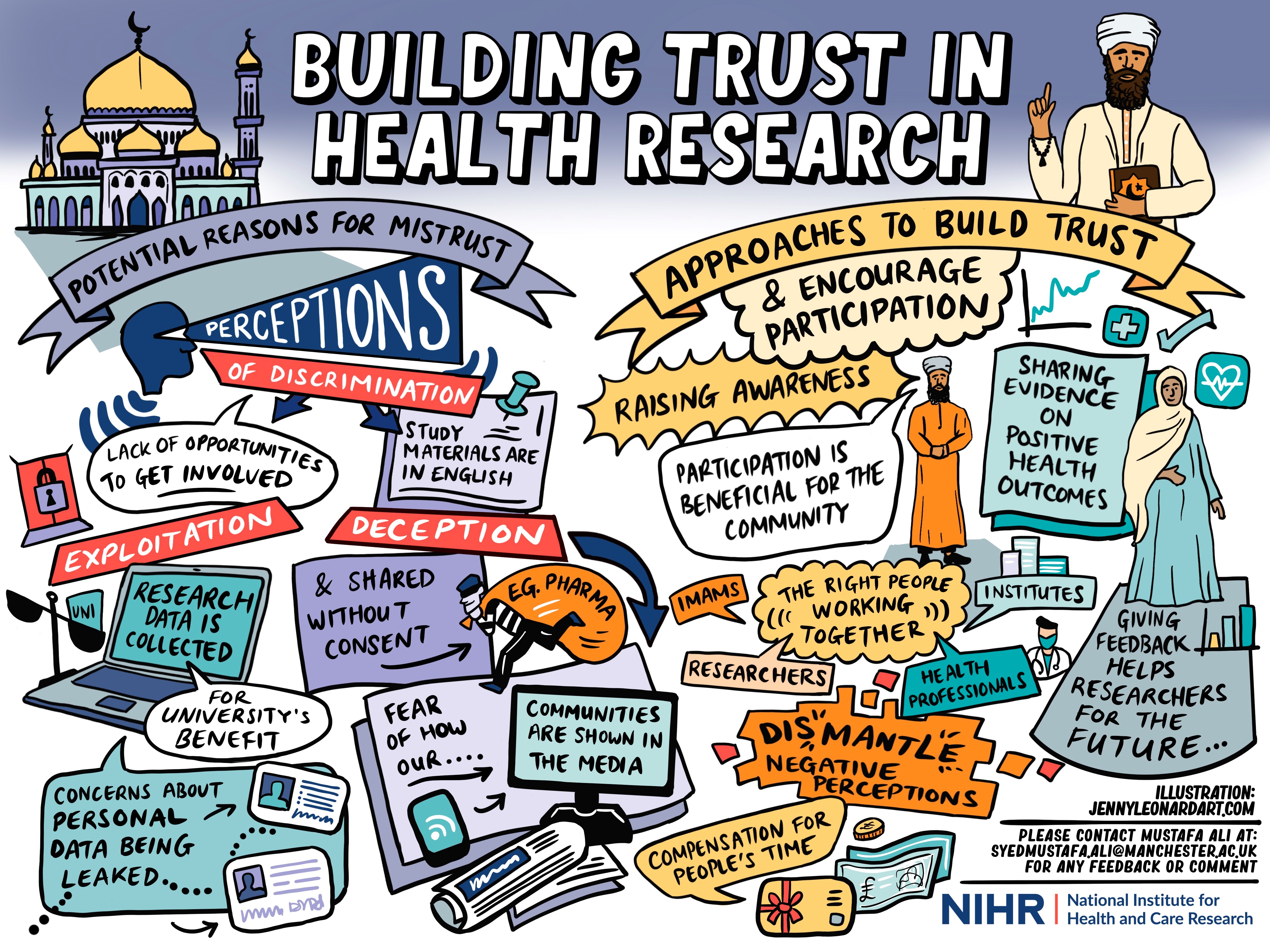ABouT Research: Approaches to Build Trust in Research among Muslims in the UK
What did we do?
The purpose of the ABouT Research study was to understand reasons of mistrust or trust in digital health technologies and research among Muslims and learn approaches to address mistrust.
Why was it important?
Introducing digital health technologies can have a negative impact on health equity for ethnic minority groups. We can minimise this negative impact by engaging these groups in the early stages of the digital health technology translational pathway, but a lack of trust is a major barrier to their engagement.
Many ethnic minority groups in the UK are Muslims, and mosques hold a central place for them. Imams are religious scholars and Muslims trust their words and actions. Leveraging the existing trust relationship between Imams and worshippers, mosques have been engaged previously for health promotion but their role in building trust in digital health technologies and research has not been explored among Muslims.
How did we do it?
This project involved carrying out a series of focus groups in mosques across the UK with an active Imam as a co-researcher. Public and community involvement and engagement supported the project in evaluating the research approach as well as research outputs and their relevance to building trust among Muslims.
Findings
In this study, we organised nine discussions with 66 people in mosques across six cities in England. Imams, administrative committee members and general public were among the participants.
The below visual poster highlights key reasons of Muslims’ mistrust in health research, and possible approaches to address their mistrust and promote their participation in health research.

What has changed as a result of this work?
For inclusive health research, researchers should engage with diverse communities to learn and adopt inclusive research practices, which are responsive to communities’ expectations. This research has developed insights into how mistrust in health research can be addressed. Researchers and technology developers should consider these new insights to guide the planning and conducting inclusive research and promote developing equitable digital health technologies, which are benefiting everyone regardless of their backgrounds.
Next steps
Further learnings should be developed about acceptable model of engagements with mosques and Imams, which can be adopted for promoting participation of Muslim ethnic minorities in health research.
Who are we working with?
Funding:
This research project has been funded via a £16,335 award from The Christabel Pankhurst Institute’s seed corn funding scheme.
Downloadable resources
More information:

Programme Manager
Dr Ross Atkinson
ross.atkinson@manchester.ac.uk